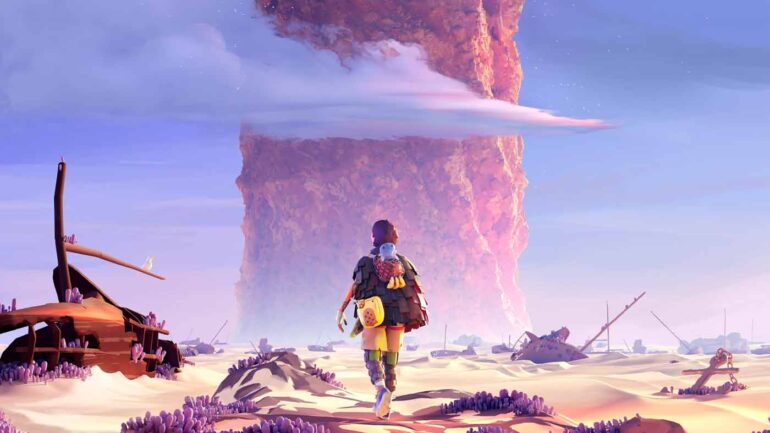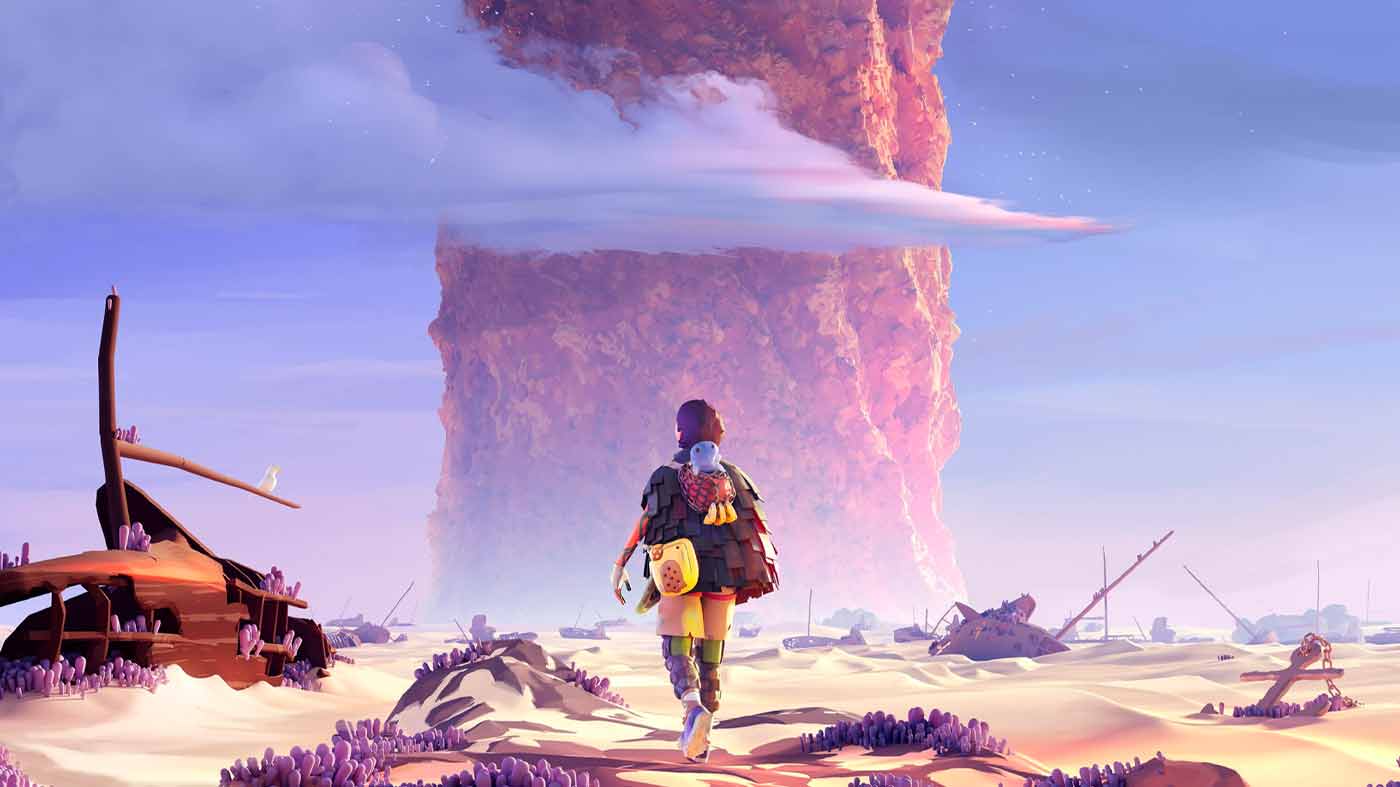It took me a minute to find my footing with Jusant. Ever since its reveal during the June Xbox Gaming Showcase, the lofty promise of “what if the climbing from Breath of the Wild but a whole game” has been swirling around in the back of my brain, idealised but never thoroughly considered. Never mind that it had emerged from French developer DON’T NOD, best known for its outstanding narrative work and hardly the first studio you’d call to mind to craft a relatively linear rock-climbing simulator. It’s in this dissonance though that Jusant has flourished, a collision of new ideas and studio-pedigree that results in a game with a rich, singular goal and an unmarked path toward it. Bumps and bruises fading as the view from the top comes around.
Jusant’s nameless protagonist is on a mission. Who they are, where they’ve come from, and why they’re so determined to reach their goal is almost immaterial to the game and is left in turn to be largely defined by whatever it is you, the player, decide to bring to this climb. Loosely you come to understand that the world of Jusant turns on an axis of absence; you emerge from an endless dry waste, once an ocean, and begin to ascend an impossibly tall and organically ornate pillar that reaches into the clouds and beyond. As you climb you learn more about the structure and the people that once built their lives around it, a people whose symbiosis with water produced majestic art and culture but, in its absence, have now fled into the wastes, leaving behind a vertical monument to their old ways and Jusant’s haunted relic of an obstacle course.
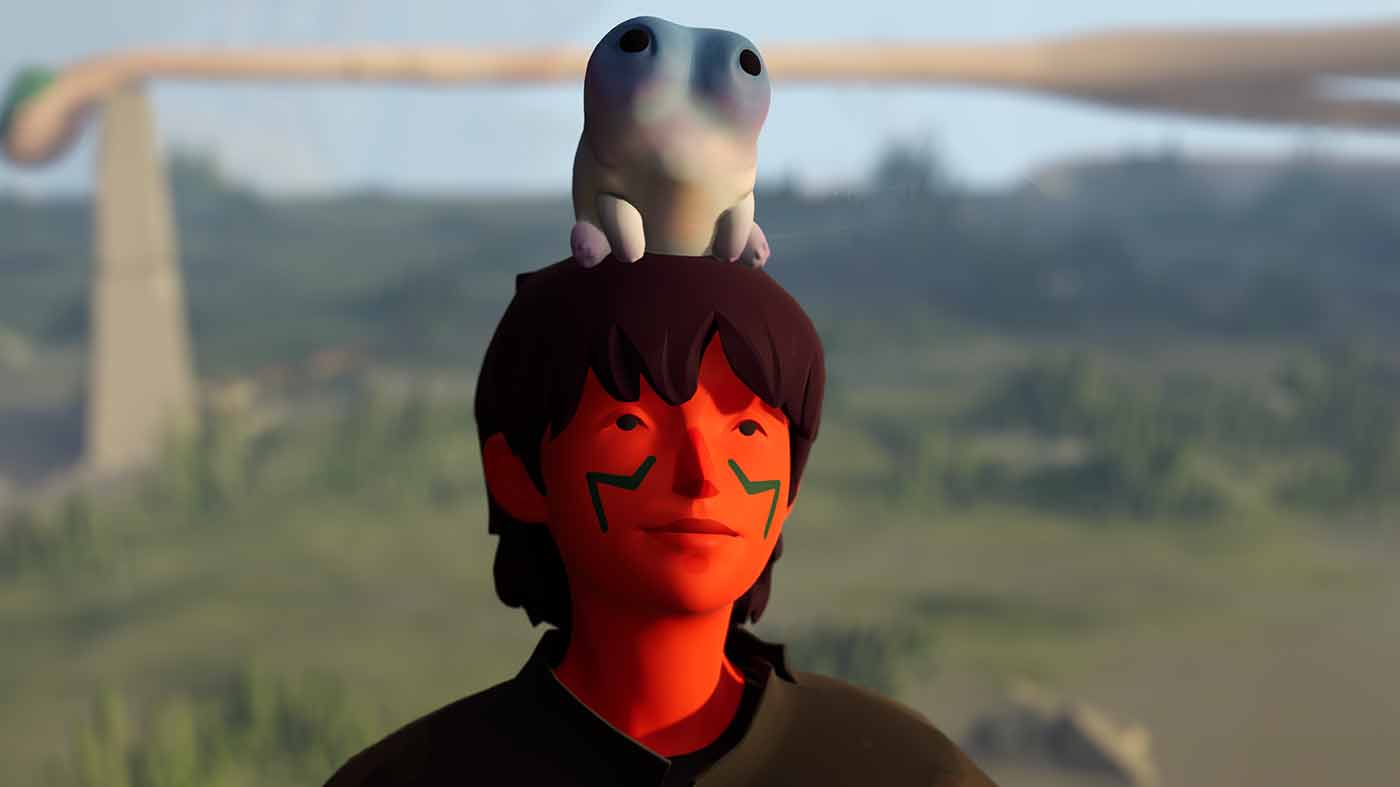
It is understood to the climber that atop this graveyard is a chance for new life, one they will be ferrying gently in their humble backpack. A kind of esoteric boy and his dog tale, Jusant has you caring for a strange creature whose body is composed of mystical, semi-formed liquid and whose small chirps have resonance with the world around you. Both emotionally charged lore ping and invaluable mechanical buddy, the two of you venture upward with Jusant’s simple, but refined, climbing systems, navigating a densely packed environment, and gently probing at the edges of the game’s aloof, but deeply affecting world. This is a game about taking your time, and while you could easily surmount the climb in around five hours, Jusant’s deliberate nature rewards an equally studious climber.
Which is something the game clearly communicates through its mountaineering with each handhold, footrest, and timely jump revolving around a limited stamina bar and dual trigger-controlled grips. The two shoulder triggers each align with the climber’s left and right hand, giving you freeform control over what each is holding onto at any given moment. The longer you hold or further you move, the more of a strain it places on your stamina meter, which can be partially restored by loosening your grip but never fully regained until you’re back on solid ground. As you progress further through the mountain, environmental stimuli will impact your manoeuvrability, like a hot sun draining your stamina faster or a strong wind giving your jumps, typically stamina heavy moves, a bit of extra distance.
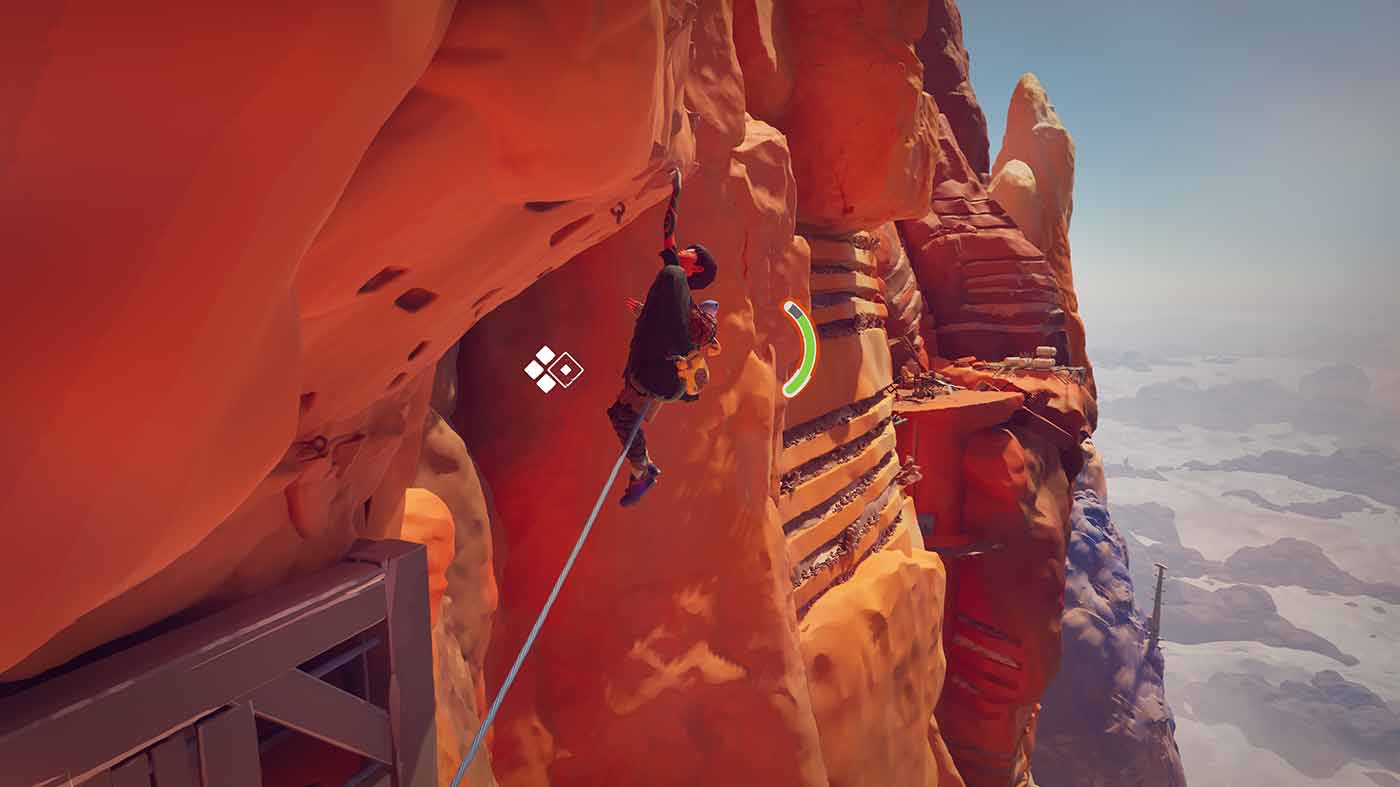
The intensely singular nature of the climbing calls Death Stranding’s somewhat infamous walk balancing to mind. Jusant layers its climbing with some finesse and niceties but is ultimately only ever truly concerned with having you master a specific toolset and find your own flow with it. There’s no fail state, the climber protected by invisible walls on most perilous drops and each climb beginning with an anchor point and generous rope allowance with additional anchor points, player-placed and otherwise, dotting the way along lengthy climbs. Even if you do flub a jump or misjudge your stamina, you’ll plummet but lose nothing but time and some patience, spooling the rope back up as you begin again, a little wiser and maybe a little wearier.
At times Jusant can frustrate, its impeccable visual path delineation and rock-solid mechanical foundations wavering as you clumsily work through its more ill-advised tightly timed platforming puzzles, methodical rhythm interrupted by bouts of sporadic clambering. There are times this tension feels deliberate, but others lack the care you’ll come to expect from the game. Those aforementioned niceties go a long way to smooth over these moments at least; your blob creature can be called upon to perform a melodic chirp, bringing nearby fauna and creatures to life to assist in your platforming, while another prompt can guide you toward either the next progression point or one of Jusant’s many collectables. Littered throughout the mountain are dozens of nooks in which you can find traces of Jusant’s rich world, from extravagant art installations to hastily scribbled notes between people who once lived here.
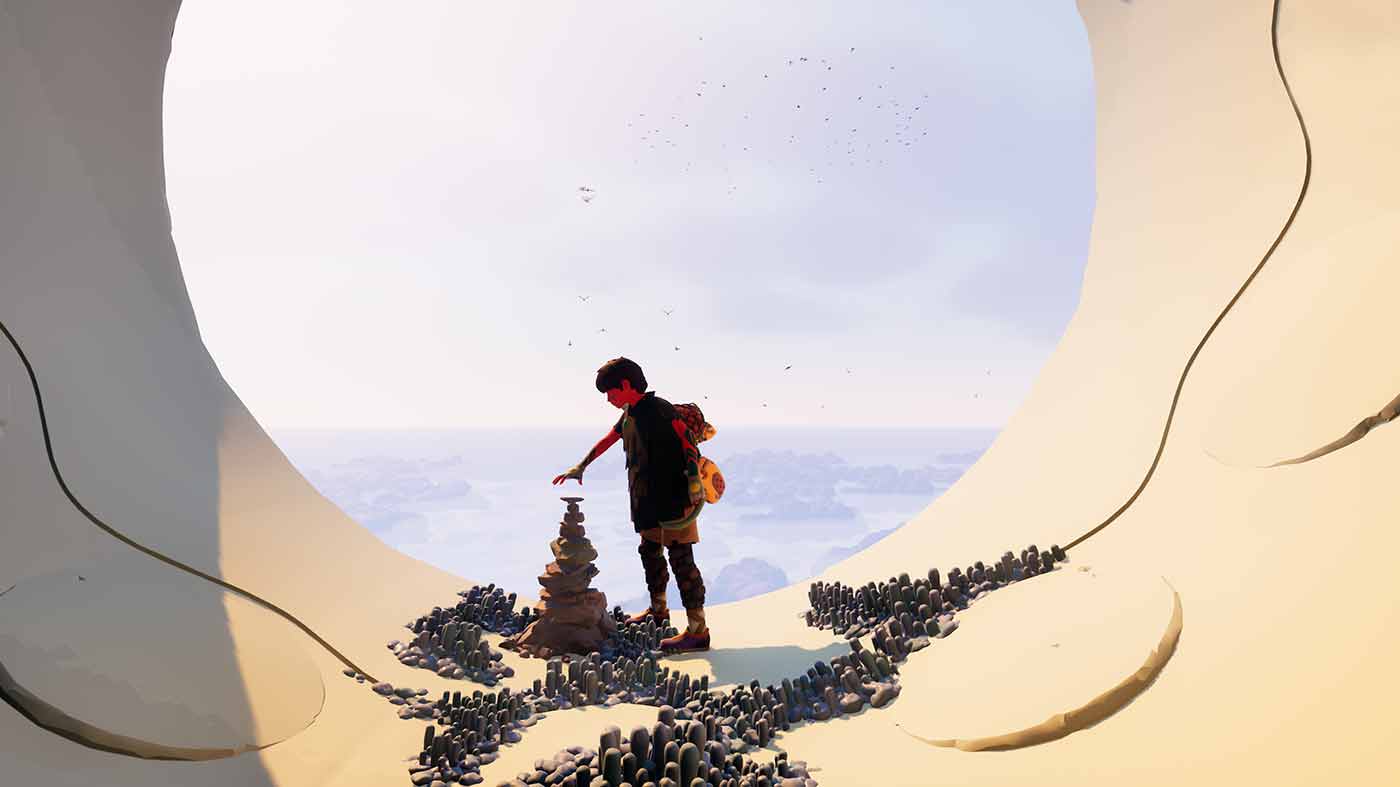
The overarching aesthetic and tonal work of the game is often awe-inspired, those hard-earned rests between climbs made magic by the relics of the old world you can discover. Water, and more specifically its absence, is everything to Jusant, informing not only its broader plot but its thematic currents too; light and memory are refracted through liquid facsimiles housed in room-sized constructs, traces of sea creatures and living in balance with the ocean permeates every dwelling and abandoned business or home, the game’s chapter’s punctuated by towering monoliths activated by the sound of breath through shells. Your climb facilitates restoration of nature both mechanically and spiritually, but what water means to you will inform what you ultimately take away from Jusant’s tale.
This richly incentivising ambiguity is strained somewhat by the game’s more explicit plot work, those letters and correspondence found in the world often halting progress and imagination with walls of text. It’s not poorly written by any means; one instances saw my breath catch slightly as I poured over a diary entry lamenting the loss of a partner, “we’ll see each other again when the clouds decide” wrote someone long before I came to this place. It’s the kind of turn of phrase that tells me Jusant’s writing is always keenly aware of its all-encompassing thematic work, but the abundance of these text entries does puncture the otherwise ethereal tone. It’s not the first time Jusant made me think on Fumito Ueda’s works but where his worlds almost entirely trust the player to pulls its threads into a tapestry, Jusant feels hesitant to operate with the same confidence.
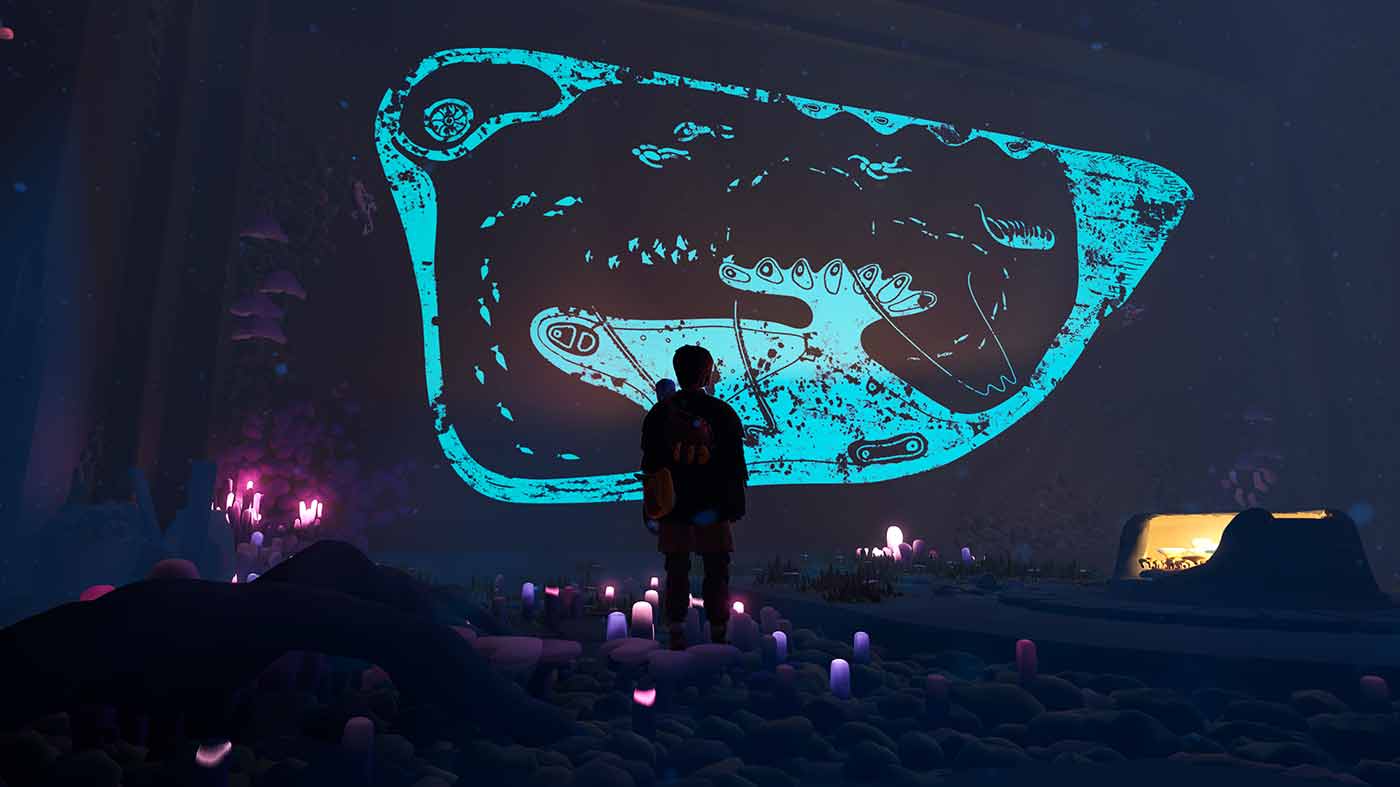
Still, Jusant is more than any individual stumble along its meditative ascension. Its closing moments, though bordering on reliance on the aesthetics of emotion more than the connective tissue itself, still managed to move me. An elegantly crafted landscape plays host to a culture both mystical and familiar as the game studiously teaches you the inherent value of a single act, done methodically and with care. Jusant’s plainly spoken world and restrained mechanics make for a timely and engaging experience but between the words, amid the climb, is where you’ll find Jusant’s true oasis.


